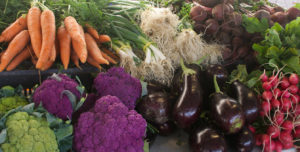Food service directors, farmers, parents, teachers, and distributors, all play a part in making farm to school a success.

Farm to school provides all students access to nutritious, high-quality, local food so they are ready to learn and grow. Farm to school activities enhance classroom education through hands-on learning related to food, health, agriculture and nutrition.

Farm to school can serve as a significant financial opportunity for farmers, fishers, ranchers, food processors and food manufacturers by opening doors to an institutional market worth billions of dollars.

Farm to school benefits everyone from students, teachers and administrators to parents and farmers, providing opportunities to build family and community engagement. Buying from local producers and processors creates new jobs and strengthens the local economy.
The State of Farm to School in Massachusetts
Research on the benefits of farm to school continues to grow.
Phone: (413) 253-3844
Email: info@massfarmtoschool.org